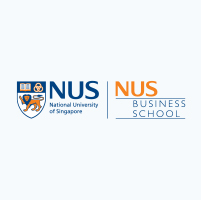As we enter a new decade, five NUS Business School faculty share their outlook on the macro economy, financial markets, corporate governance, artificial intelligence and leadership.

The business outlook for 2020
Distinguished Professor Andrew Rose,

The global macro economy has slowed down, largely because of the uncertainty created by US President Donald Trump.
No one knows what will be his next target for tariffs – German cars? Chinese toys? Canadian steel? French cheese? – and certainty is something that businesses crave in making investment decisions.
Since there are no definable objectives or strategy from Mr Trump, it is hard to see this uncertainty disappearing any time soon. That’s especially true since his unpredictability makes him the centre of attention, which he loves.
Further, the 2020 presidential election is going to make the Trump administration reluctant to back down on its stand-off with China – or anyone else – since that may be seen as making the Republicans look weak. Accordingly, the fundamental cause of the slowdown is likely to persist, and so will the slowdown.
It is good to remember that most countries are still growing, albeit at a reduced pace. The real danger lies in the inability of advanced economies to respond to negative shocks.
Bad things happen once in a while, macro-economically speaking, and unfortunately we just do not have most of the usual tools that we usually use to respond to them. Nominal interest rates are already low or negative in most rich countries, and governments are fiscally stretched, so the usual policy levers are not accessible.
So watch out. It could be a bumpy ride ahead!
Bright light in some Asian markets
Professor Sumit Agarwal, Low Tuck Kwong Distinguished Professor of Finance, Economics and Real Estate; Author of Kiasunomics

Financial markets have been doing fairly well in Asia and the United States this year. I would expect more volatility and corrections to happen in 2020. This is because of global economic and political uncertainty, not only for Asia, but also for the US.
The bright light in Asian markets would be India and Vietnam, which have grown at a fast rate.
There is still uncertainty associated with other markets, such as Hong Kong. Singapore will remain a stable market.
In 2019, inflation rates have been low for Asian countries such as Singapore, China, India and Malaysia. We have not been seeing inflationary pressure around the world, so interest rates are not likely to go up in the near future.
This is good for economic growth, as companies can borrow at cheaper rates and grow faster. However, there is also an increased shift away from labour to capital. So this is likely to cause unemployment concerns for policymakers. They will have to focus more on upskilling and lifelong learning programmes.
The biggest uncertainty for financial markets is global trade, which has resulted in slower economic growth for several countries. But there has been a redistributive effect where markets such as India, Thailand and Vietnam can sell more of their goods to the US. Nonetheless, we still hope for a resolution as trade is good for all economies.
Good gender diversity at CEO level, but more can be done at board level
Associate Professor Lawrence Loh, Director Centre for Governance, Institutions and Organisations

Board diversity is at a critical juncture as we enter the 2020s.
On the one hand, we are faring well in gender diversity at the executive management level. In Credit Suisse’s Gender 3000 report, Singapore, with 15 per cent of our chief executive officers being female, is ranked No. 1 out of 56 markets in achieving CEO gender diversity. This is a joint top position we share with Italy.
On the other hand, gender diversity at the board level can be improved. Among the top 100 companies in Singapore, 15.7 per cent of board directors are women, as of June this year. It remains to be seen whether we can achieve the 2020 goals set by the Council for Board Diversity, where 20 per cent of board directors would be female.
The council also hopes the figure can reach 25 per cent by 2025 and 30 per cent by 2030. As of June, 21 out of the top 100 companies have an all-male board. This number can be reduced further.
We need to buck up and deliberately encourage more companies to have gender diversity, especially at the governing board layer.
More investors, consumers and potential employees are tracking diversity at the leadership level. Companies’ sustainability movement is one thing to look out for next year, and gender diversity is one indicator of that movement.
There is currently a chasm between the number of females at the executive management level and at the board level. This may be due to an existing “old boys’ network” at the board level.
Hopefully, the chasm can become smaller next year.
AI both a boon and bane to business
Alex Capri, Visiting Senior Fellow, Department of Analytics and Operations

In 2020, artificial intelligence (AI) will continue to impact the business landscape and present a paradox to both small and medium-sized enterprises (SMEs) and large multinational businesses.
For SMEs, the platform economy will continue to offer access to an increasing number of ideas, collaborative networks, enablers, facilitators and, of course, suppliers and customers.
Barriers to entry will continue to fall when it comes to general access to the sharing economy, social commerce, e-commerce and cloud-based resources.
Simultaneously, however, a technology backlash in the form of new regulations on data privacy and security, fake news and (for cross-border e-commerce) indirect taxes and duties will pose challenges.
Some of these challenges will have a silver lining: They will galvanise a “regtech” (regulatory technology) hotbed of start-ups and new business. Simply put, these regtech companies use technology to help other companies comply with regulations more efficiently.
But doing cross-border business in this growing regulatory thicket, from one country to the next, will be a challenge for many SMEs.
Good leadership does not mean more collaboration
Adjunct Associate Professor Andreas Raharso, Department of Strategy & Policy

One of the biggest leadership challenges in 2019 is for leaders to show the way forward. A McKinsey report found that in an era of workforce reskilling and disruptive business models, this challenge is not easy to address. Take, for instance, connectedness.
The technology revolution has enabled hyper-interconnectedness where people connect and collaborate on multiple platforms such as e-mail, phone, Facebook and LinkedIn because of some shared experiences.
While this creates a very dense level of connection among people, often touted as “good”, from the organisation’s perspective, employees who are too connected together may not be productive – they may be less likely to develop new ways of doing things as they are way too alike.
Leading organisations such as Amazon, Nasa and Schneider Electric have been re-examining and redefining what collaboration should be like as part of their next practice leadership, with the aim of managing the level of interconnectedness for optimal performance. Functioning in silos, often considered “bad”, may have overlooked benefits.
It may well be that 2020 will be the year when collaboration and working in silos are re-examined.



